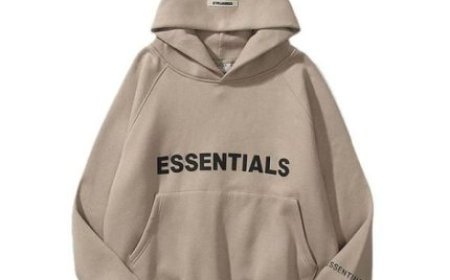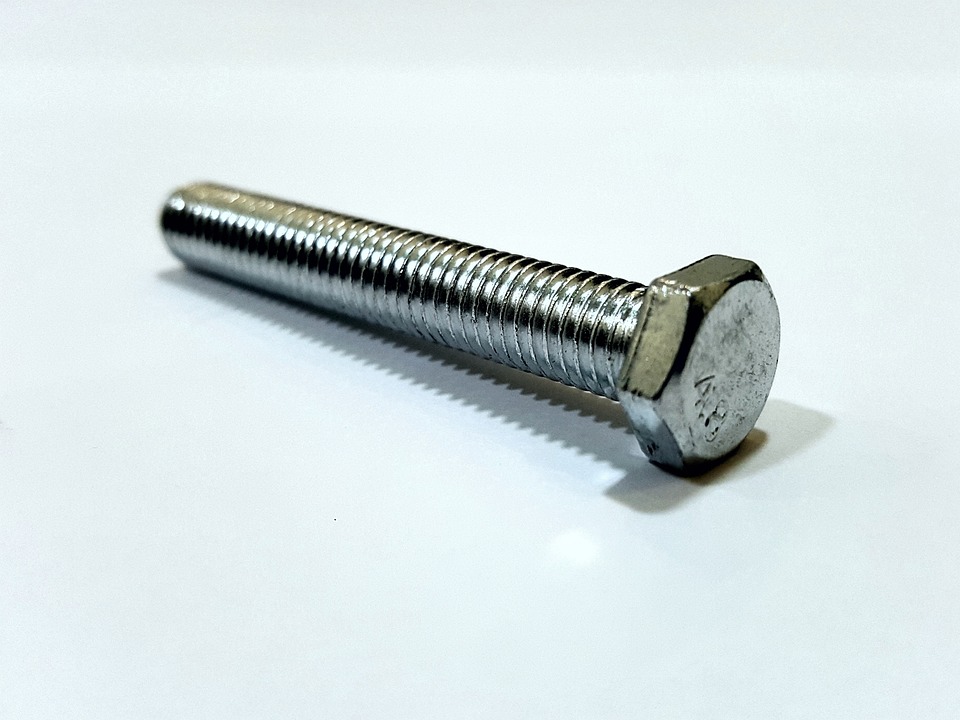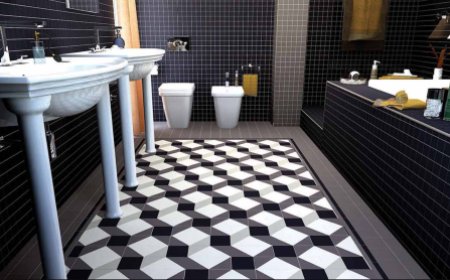How to Find New Orleans Cocktail Classes
How to Find New Orleans Cocktail Classes New Orleans is more than a city—it’s a living archive of flavor, rhythm, and tradition. At the heart of its cultural identity lies the cocktail. From the birth of the Sazerac to the enduring elegance of the Vieux Carré, the city’s drink culture is as deep as its jazz roots. For visitors and locals alike, learning how to craft these iconic libations isn’t ju
How to Find New Orleans Cocktail Classes
New Orleans is more than a cityits a living archive of flavor, rhythm, and tradition. At the heart of its cultural identity lies the cocktail. From the birth of the Sazerac to the enduring elegance of the Vieux Carr, the citys drink culture is as deep as its jazz roots. For visitors and locals alike, learning how to craft these iconic libations isnt just a hobbyits a rite of passage. Finding the right New Orleans cocktail class can transform a casual trip into a meaningful, immersive experience. Whether youre a home bartender looking to elevate your skills, a culinary enthusiast, or simply someone who appreciates the art of mixology, knowing how to locate authentic, high-quality cocktail classes in New Orleans is essential. This guide provides a comprehensive, step-by-step roadmap to help you discover, evaluate, and enroll in the best cocktail classes the city has to offer.
Step-by-Step Guide
Finding the perfect New Orleans cocktail class requires more than a quick Google search. It demands strategy, research, and a touch of local insight. Follow these seven steps to ensure you find a class that aligns with your goals, schedule, and interests.
Step 1: Define Your Goals
Before you begin searching, ask yourself why you want to take a cocktail class. Are you looking to master classic New Orleans recipes? Do you want to learn about the history behind each drink? Are you interested in hands-on bartending techniques, or simply enjoy tasting and learning in a social setting? Your goals will determine the type of class you should pursue. For example:
- If youre a beginner, look for introductory classes that cover foundational techniques like shaking, stirring, muddling, and garnishing.
- If youre more advanced, seek out specialized workshops on barrel aging, house-made syrups, or spirit distillation.
- If your goal is cultural immersion, prioritize classes taught by local historians or bartenders with deep ties to the citys drinking heritage.
Clarity here saves time and ensures you dont waste money on a class that doesnt meet your expectations.
Step 2: Research Reputable Venues
New Orleans is home to a wide range of establishments offering cocktail classesfrom historic hotels and renowned bars to dedicated mixology schools. Start by compiling a list of credible venues known for their educational programs. Some of the most respected include:
- The Sazerac House A museum and immersive experience centered on the citys most famous cocktail. Their classes are led by experts and often include historical context alongside tasting.
- Arnauds French 75 Bar Offers intimate, small-group sessions focused on classic New Orleans cocktails with a side of jazz history.
- Bar Tonique Known for its award-winning cocktails and hands-on workshops that dive into ingredient sourcing and technique.
- La Maison de la Vodka A boutique school specializing in European and New Orleans fusion cocktails.
- Hotel Monteleones Carousel Bar Hosts seasonal classes tied to its iconic rotating bar and storied past.
Visit each venues official website to review class offerings, instructor bios, and student testimonials. Avoid venues that lack transparency about their curriculum or dont list their instructors credentials.
Step 3: Use Local Directories and Event Platforms
Search beyond the obvious. Leverage local directories and event platforms that aggregate experiences unique to New Orleans:
- Visit New Orleans The official tourism site often lists curated cocktail experiences, including classes, tours, and festivals.
- Eventbrite Search New Orleans cocktail class and filter by date, price, and rating. Many small businesses and independent mixologists list here.
- Meetup.com Look for local bartender groups or cocktail clubs that host monthly workshops.
- Yelp Filter for cocktail classes and sort by highest-rated. Read recent reviews to gauge current quality and consistency.
These platforms often surface hidden gemslike a class taught by a former bartender from the Carousel Bar who now runs private lessons from his home studio.
Step 4: Check Class Format and Duration
Cocktail classes vary widely in structure. Some last 90 minutes; others span multiple days. Consider your schedule and learning style:
- One-hour tasting classes Ideal for tourists with limited time. Focus on sampling and light instruction.
- 23 hour hands-on workshops Best for those who want to mix drinks themselves. Includes ingredient prep, technique practice, and feedback.
- Multi-session courses For serious learners. May cover spirits theory, bar management, and even certification prep.
Also note whether the class is group-based or private. Group classes offer social interaction and lower costs, while private sessions allow for personalized pacing and tailored content.
Step 5: Verify Instructor Credentials
The quality of a cocktail class is directly tied to the expertise of the instructor. Look for bios that highlight:
- Experience working at iconic New Orleans bars (e.g., Commanders Palace, The Columns, or Cure).
- Participation in national or international mixology competitions.
- Teaching experience or certification from recognized institutions like the United States Bartenders Guild or the Institute of Culinary Education.
- Publications, media appearances, or contributions to cocktail literature.
For example, an instructor who has written for Diffords Guide or appeared on Bar Rescue brings authority and depth to the class. Dont hesitate to reach out to venues directly to ask about instructor backgrounds.
Step 6: Read Recent Reviews and Ask for Recommendations
Reviews are your most reliable indicator of current quality. Look for patterns in feedback:
- Are students consistently praising the instructors knowledge?
- Do reviews mention clear, step-by-step instruction?
- Is there mention of high-quality ingredients or unique takes on classics?
- Are there complaints about overcrowding, poor timing, or lack of hands-on time?
Also, ask locals. New Orleanians are proud of their cocktail culture and often know the best-kept secrets. Visit a well-regarded bar and ask the bartender: If you were going to take a cocktail class here, where would you go? Their answer may lead you to a class not widely advertised.
Step 7: Book Early and Confirm Details
Popular classes in New Orleans fill up quicklyespecially during Mardi Gras, Jazz Fest, and the holiday season. Once youve selected a class:
- Book at least two to four weeks in advance.
- Confirm the meeting locationsome classes are held in back rooms, private parlors, or off-the-beaten-path locations.
- Ask about whats included: Are drinks provided? Are recipes handed out? Is there a tasting component?
- Inquire about accessibility, parking, and public transit options.
- Save the confirmation email and add the event to your calendar with a reminder.
Some venues offer a waitlist if a class is sold outsign up. Cancellations do happen, and you may get lucky.
Best Practices
Once youve found the right class, following best practices ensures you get the most value from your experienceand leave with skills that last far beyond the session.
Prepare in Advance
Even if the class is beginner-friendly, a little preparation goes a long way. Before attending:
- Research the history of New Orleans cocktails. Familiarize yourself with terms like muddling, double straining, and fat-washing.
- Learn about key spirits used in the region: rye whiskey, cognac, absinthe, and local bitters.
- Watch short YouTube videos on basic bar techniques to build confidence.
This background knowledge allows you to ask smarter questions and absorb instruction more deeply.
Bring the Right Gear
Most classes provide equipment, but you can enhance your experience by bringing:
- A notebook and pen For jotting down recipes and tips.
- A small bottle or vial To take home a sample of a unique syrup or bitters you create.
- Comfortable shoes Many venues require standing for extended periods.
- A camera or phone For documenting your creations (but avoid excessive photo-taking that distracts from the experience).
Some instructors even encourage students to bring a favorite cocktail glass to learn how to properly use it.
Engage Actively
Passive observation wont help you become a better bartender. Ask questions. Request demonstrations. Volunteer to try a technique youre unsure about. Instructors appreciate curiosity.
Dont be afraid to say, Ive never made a Sazerac beforecan you walk me through the rinse? or Why is Peychauds bitters so central to New Orleans cocktails?
These moments of engagement often become the highlights of the classand sometimes lead to follow-up mentorship or invitations to private events.
Follow Up After the Class
The learning doesnt end when the class does. Within 24 hours, send a thank-you note to the instructor via email or social media. Mention something specific you learnede.g., I never realized how temperature affects dilution until you demonstrated it.
Then, recreate the cocktails at home. Practice the techniques. Document your results. Share your progress on social media using the venues hashtag (e.g.,
SazeracHouseClasses). Many venues feature student creations on their platforms.
Consider joining their mailing list. Many offer alumni discounts on future classes or invite graduates to exclusive tastings.
Respect the Culture
New Orleans cocktail culture is deeply rooted in history, community, and resilience. Avoid treating it as a novelty or gimmick. Dont refer to drinks as fun or trendy in front of instructors whove dedicated decades to preserving tradition. Use respectful language. Acknowledge the African, Caribbean, French, and Spanish influences that shaped the citys libations.
When you order a cocktail in a local bar after your class, say thank you to the bartender. Youre now part of a lineage.
Tools and Resources
Equipping yourself with the right tools makes finding and succeeding in New Orleans cocktail classes far easier. Below are essential digital and physical resources to support your journey.
Online Research Tools
- Google Maps Search cocktail classes New Orleans and use filters for ratings, distance, and open now. Pin locations to plan your itinerary.
- Yelp Use advanced filters to find classes with 4.8+ ratings and recent reviews. Sort by most reviewed to identify consistent performers.
- Instagram Follow hashtags like
NOCocktailClass, #SazeracHouse, #NewOrleansMixology. Many venues post live updates, class sneak peeks, and student highlights.
- Bookings.com / Airbnb Experiences Search cocktail class to find unique, often private experiences hosted by local bartenders in their homes or bars.
Books for Background Knowledge
Reading before you attend a class enriches the experience. These titles are essential:
- The Sazerac: A History of New Orleans Signature Cocktail by Robert Simonson
- Death in the Afternoon by David Wondrich Covers the history of American cocktails, with deep dives into New Orleans classics.
- Imbibe! by David Wondrich A foundational text on cocktail origins and evolution.
- Drinks of New Orleans by Elizabeth Pearce Focused entirely on the citys drink culture, with recipes and stories.
Many local bookstores like Octavia Books or Newtons Books carry these titles and may offer discounts to class attendees.
Essential Equipment to Know
While most classes provide tools, understanding whats used helps you follow along:
- Shaker Cobbler or Boston, used for mixing and chilling.
- Jigger For precise measurement of spirits.
- Muddler Crushes herbs and fruit to release oils and flavor.
- Strainer Hawthorne or fine mesh, for removing solids.
- Bar spoon Long-handled, for stirring cocktails.
- Citrus press For fresh juice.
- Ice tongs and hammer For handling and breaking large ice cubes.
Many venues sell starter kitsconsider purchasing one after class to continue practicing at home.
Mobile Apps
- Drizly Find local liquor stores carrying the ingredients youll need for class recipes.
- Bartenders Guide A digital recipe book with filters for spirit type, region, and difficulty.
- TimeOut New Orleans Regularly updates its Best Cocktail Classes list and offers exclusive deals.
Local Resources
Dont overlook physical locations:
- The New Orleans Public Library Offers free access to cocktail history archives and digital newspapers.
- The Historic New Orleans Collection Houses rare cocktail menus, bar ledgers, and photographs from the 1800s.
- Local liquor stores Ask staff at Drifters Liquor or Marigny Wine & Spirits for recommendations on where to take classes. They often know the insiders.
Real Examples
Concrete examples illustrate how the process works in real life. Here are three detailed case studies of individuals who successfully found and benefited from New Orleans cocktail classes.
Case Study 1: Sarah, a Home Bartender from Chicago
Sarah, a 32-year-old marketing professional, visited New Orleans during Jazz Fest. She wanted to learn how to make a proper Sazeracnot just taste one. Using Yelp and Instagram, she found The Sazerac Houses History & Craft class, rated 4.9 with over 200 reviews. She booked two weeks in advance.
The class lasted 2.5 hours and included a museum tour, a lecture on 19th-century apothecary culture, and hands-on preparation of three cocktails. Sarah took notes, asked about the origin of Peychauds bitters, and received a printed recipe booklet. After returning home, she recreated the Sazerac for her friends and posted photos with the hashtag
SazeracHouseGrad. Within a month, she was invited to join a local cocktail club.
Case Study 2: Marcus, a College Student from Baton Rouge
Marcus, 20, took a weekend trip to New Orleans with his fraternity. He wanted to impress his friends with cocktail skills. He found a $45 class on Eventbrite hosted by a former bar manager from Arnauds. The class was held in a backyard garden in the French Quarter and focused on gin-based cocktails with local herbs.
He learned how to make a French 75 with house-made lemon syrup and lavender bitters. He took home a small bottle of the syrup and practiced every weekend. Six months later, he started hosting Cocktail Sundays at his dorm, using the recipes he learned. His friends began calling him The New Orleans Bartender.
Case Study 3: Linda, a Retiree from Atlanta
Linda, 68, took a solo trip to New Orleans to explore her love of history and flavor. She didnt want a loud, party-style class. She contacted the Historic New Orleans Collection and was referred to a private, two-hour class with a retired bartender who had worked at the Carousel Bar for 37 years.
The session was intimate, held in a quiet library lounge. Linda learned the story behind the Vieux Carr, how to properly stir a Manhattan, and the importance of ice quality. She was given a handwritten recipe card signed by the instructor. She framed it and now displays it in her home bar. She later wrote a letter to the venue, which was published in their newsletter.
These examples show that no matter your age, background, or goal, theres a New Orleans cocktail class designed for you. The key is knowing where to lookand how to ask the right questions.
FAQs
Are New Orleans cocktail classes suitable for beginners?
Absolutely. Many classes are designed specifically for beginners, with no prior experience required. Instructors typically start with the basicshow to hold a shaker, measure spirits, and use a jiggerand build from there. Look for keywords like introductory, beginner-friendly, or no experience needed in class descriptions.
How much do cocktail classes in New Orleans cost?
Prices vary based on duration, venue, and inclusions. Expect to pay:
- $25$40 for short tasting sessions (6090 minutes).
- $60$100 for hands-on workshops (23 hours).
- $150+ for multi-session courses or private group classes.
Some classes include drinks and snacks; others charge extra for them. Always check whats included before booking.
Do I need to bring my own ingredients or tools?
No. Most venues provide all necessary tools and ingredients. However, if you have a favorite glass or a special bottle of bitters youd like to use, youre welcome to bring it. Some instructors even encourage students to bring a personal item that inspires themlike a family recipe or a cocktail from their hometown.
Can I take a class if I dont drink alcohol?
Yes. Many venues now offer non-alcoholic or mocktail versions of their classes. Instructors can substitute spirits with non-alcoholic distillates, shrubs, or house-made tonics. Be sure to mention your preference when booking so they can prepare accordingly.
Are cocktail classes offered year-round?
Yes. While availability may fluctuate during holidays or major festivals, most reputable venues offer classes weekly or biweekly. Summer and fall tend to have the most consistent schedules. Check websites directly or sign up for email newsletters to stay updated.
Can I take a class as a group or for a private event?
Most venues offer private group bookings for parties, bachelor/bachelorette events, or corporate team-building. Minimum group sizes typically range from 46 people. Private classes often allow customization of the menu and themeperfect for celebrating a milestone or creating a unique experience.
How long do classes usually last?
Most classes last between 90 minutes and 3 hours. Shorter sessions focus on tasting and history; longer ones include hands-on practice and multiple cocktails. Multi-day courses may span 48 hours total, broken into two sessions.
Is tipping the instructor expected?
Tipping is not required but is always appreciated. If the instructor went above and beyondoffering extra tips, personalizing the experience, or sharing storiesconsider leaving $5$15, especially if the class was under $75. Many instructors rely on tips as part of their income.
Can I get certified after taking a class?
Some advanced courses offer completion certificates, especially those affiliated with the United States Bartenders Guild or professional mixology schools. However, most recreational classes do not provide certification. If certification is your goal, look for programs explicitly labeled as professional training or bartending certification.
What if I cant find a class on my travel dates?
If no classes are available during your visit, consider booking a cocktail tour instead. Many companies offer guided bar crawls that include mini-lessons at each stop. You can also reach out to local bars and ask if they offer spontaneous bar-top tutorials for guestssome do, especially during quieter hours.
Conclusion
Finding the right New Orleans cocktail class is not just about booking a sessionits about stepping into a centuries-old tradition of artistry, resilience, and celebration. The citys cocktail culture is not a performance; its a conversation between generations, a living story told in sugar, spirit, and spice. By following the steps outlined in this guidedefining your goals, researching reputable venues, engaging with instructors, and respecting the cultureyou dont just learn how to make a Sazerac. You learn how to listen to the citys soul.
The tools, resources, and real-life examples shared here are designed to empower younot just to find a class, but to make the most of it. Whether youre a curious traveler, a passionate home bartender, or someone seeking deeper connection to a place, New Orleans offers a class that will change how you see drink, history, and community.
So go ahead. Book that class. Bring your notebook. Ask the questions. Taste slowly. And when you stir your next cocktail at home, remember: youre not just making a drink. Youre continuing a legacy.




















